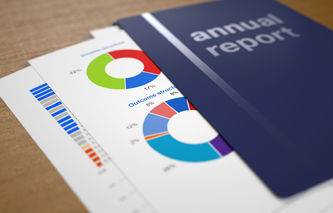Definition
The term proxy statement refers to a document companies provide to their shareholders outlining decisions the company will discuss at a special or annual shareholder meeting. The Securities and Exchange Commission requires companies to provide a definitive proxy statement to shareholders prior to a vote on important matters.
Explanation
Publicly-traded companies are required by federal securities laws to disclose certain operating and financial information on an ongoing basis. A definitive proxy statement, also known as Form DEF 14A or Statement 14A, is a document that is filed with the Securities and Exchange Commission that discloses to shareholders facts and information concerning issues that require a vote by holders of the company's stock.
A definitive proxy statement must be provided to shareholders at least forty days prior to a special or annual meeting. Typically, companies will provide a copy of the company's annual report along with this document. The types of matters usually presented on these forms include:
Nominees for Election to the Company's Board of Directors
Approval of Executive Compensation (inclusive of salaries, bonuses, stock awards and deferred compensation)
Ratification of an Independent Registered Public Accountant
Approvals of Stock Purchase Plans
Approvals of Incentive Compensation Plans
Companies will normally include a "catch all" topic on this statement, which will use language such as "To transact other business that may properly come before the Annual Meeting."







